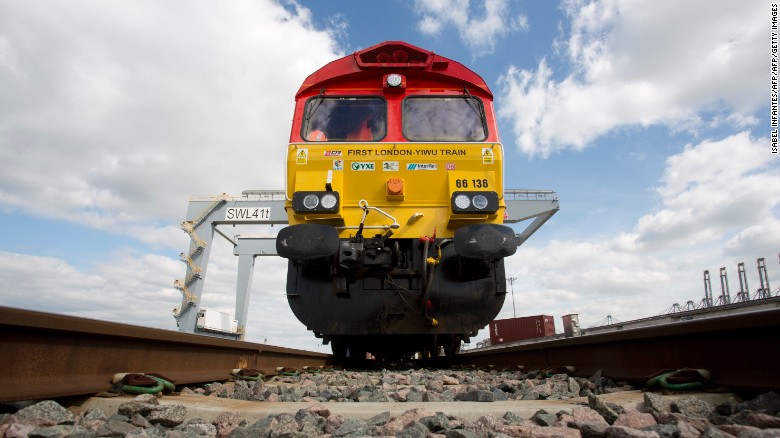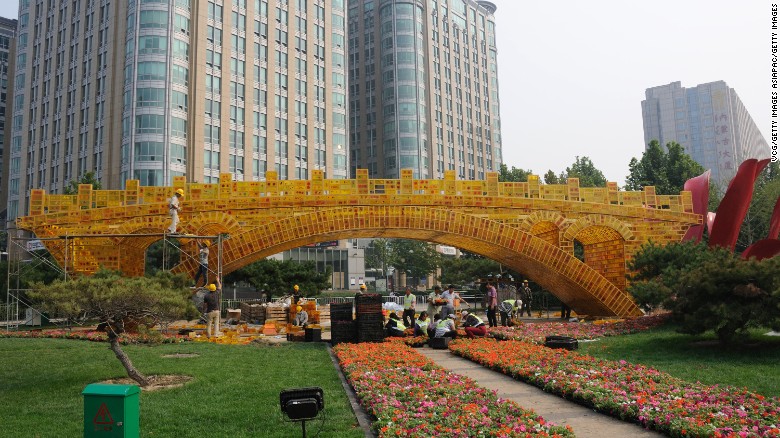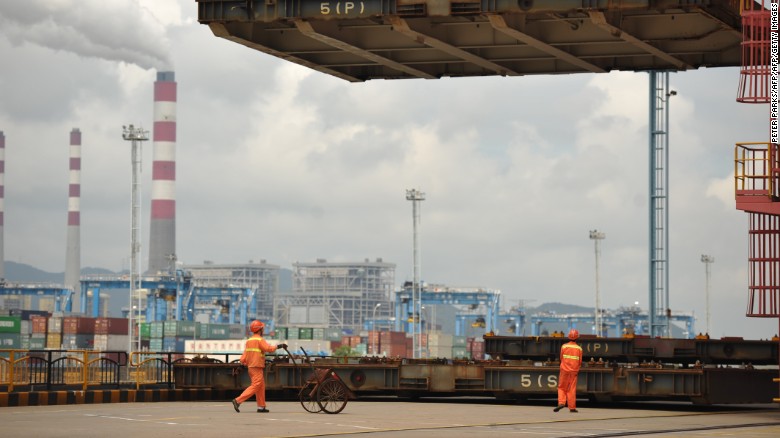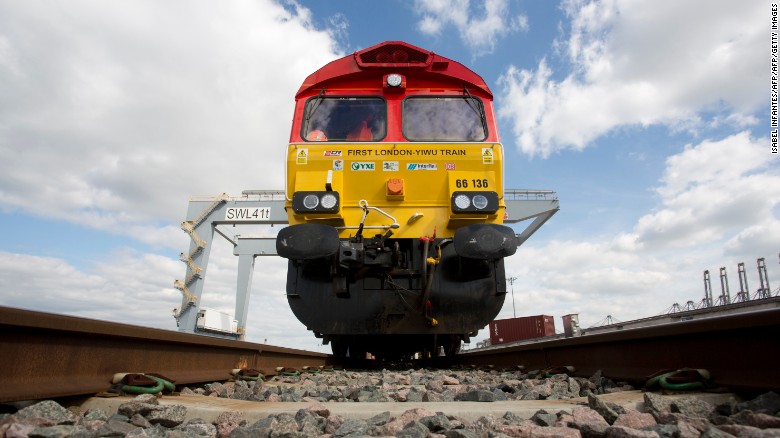Just what is this One Belt, One Road thing anyway?
Spanning more than 68 countries and encompassing 4.4 billion people and up to 40% of the global GDP, China's One Belt, One Road project is not short on ambition.
Its boosters tout its massive economic promise and claim it could benefit the entire world and lift millions out of poverty.
But no one can say for sure what exactly the plan encompasses, and detractors warn it could be an expensive boondoggle at best or a massive expansion of Chinese imperial power at worst.
So what is One Belt, One Road?
No one is totally sure. At the most basic level, One Belt, One Road (OBOR) is a collection of interlinking trade deals and infrastructure projects throughout Eurasia and the Pacific, but the definition of what exactly qualifies as an OBOR project or which countries are even involved in the initiative is incredibly fuzzy.
"It means everything and it means nothing at the same time," said Christopher Balding, a professor of economics at Peking University.

"One Belt, One Road" includes a number of hugely ambitious projects, including a train line stretching from eastern China to London.
Why is it so unclear?
While it might have originally had a comprehensible thesis behind it, OBOR has become such a popular buzzword that it's next to impossible to lock down criteria for how any given project would or could fit into the overall initiative.
Chinese officials tend to mention it regardless of what they're trying to promote, like a US lawmaker talking about "freedom."
Chenggang Xu, a professor of economics at the Cheung Kong Graduate School of Business, said it helps to think of OBOR as a "philosophy" or "party line," rather than anything concrete.
As an example of what an all-encompassing buzzword its become, state media has claimed OBOR will benefit: the Middle East peace process, start-ups in Dubai, currency trading, global poverty reduction, Xinjiang's medical industry, Australian hotels, nuclear power, Polish orchards, and, finally, the entire world.
Jörg Wuttke of the EU Chamber of Commerce in China, warned this week the initiative has increasingly "been hijacked by Chinese companies, which have used it as an excuse to evade capital controls, smuggling money out of the country by disguising it as international investments and partnerships."
What's with the name?
Confusion about OBOR isn't helped by its lack of a clear name or even a settled upon abbreviation.
The initiative consists of two major parts:
These two projects are known collectively as One Belt, One Road, or Belt and Road, or the New Silk Road.
What does China get out of this?
According to Chinese state media, some $1 trillion has already been invested in OBOR, with another several trillion due to be invested over the next decade.
There are two main benefits for Beijing from this: economic, and political -- both with their own significant risks.
What are the economic benefits?
As its runaway economic growth has slowed in recent years, China has suffered from widespread overcapacity in heavy industries such as steel, cement and aluminum.
Ways of dealing with declining domestic demand include cutting jobs -- more than 1.2 million in 2016 and 2017 -- and expanding demand overseas.
"China is looking to use OBOR as a way to ship its own domestic overproduction offshore," said Nick Marro, an analyst with the Economist Intelligence Unit (EIU).
The project will also open new markets for Chinese goods, shoring up the country's economy against any potential slowdown in demand from Europe or the US, said Jin-Yong Cai, former head of the International Finance Corporation.
"(China is) leveraging their own capital to get involved in helping (other) countries to get wealthier so they can become customers of Chinese products," he said.

Workers prepare the "Silk Road Golden Bridge" in Beijing for the upcoming Belt and Road Forum.
What are the economic risks?
While China stands to reap major benefits from OBOR projects, it is also footing a significant proportion of the risks entailed with them.
Many key countries targeted by OBOR -- in central Asia, Africa and southeast Asia -- are prone to economic and political instability and corruption.
What happens when an OBOR project funded by the Chinese government fails is unclear, said Xu. He warned that if a series of projects fail at the same time, "then the whole thing could collapse."
Balding said China "has a very poor track record of their investment overseas," pointing to widespread problems with Chinese projects in Venezuela, Sri Lanka and Myanmar.
He added that OBOR in particular is characterized by projects with "very little economic rationale for China."
Wuttke warned the project could be remembered as a "huge white elephant that left an enormous amount of wasted resources strewn along its path."

China's vast container ports will play a major role in "One Belt, One Road."
What are the political benefits?
Most analysts agree that, for all its rhetoric about trade and development, OBOR is primarily a political project.
It has been compared to the Marshall Plan -- the huge redevelopment initiative undertaken by the US to rebuild Western Europe in the wake of World War II, after which it emerged as a global superpower -- though Chinese state media has vociferously rejected this analogy.
According to Tom Miller, author of "China's Asian Dream: Empire Building Along the New Silk Road," OBOR is part of a plan by China focused on "restoring its historical status as Asia's dominant power."
"China's new 'empire' will be an informal and largely economic one, posited on cash and held together by hard infrastructure," Miller writes.
Balding said the project is "more like a diplomatic effort for China to win friends and influence people," rather than a strictly economic program.
This effort will be on show in Beijing on May 14-15, when world leaders including Russian President Vladimir Putin and Turkish President Recep Tayyip Erdogan will be in attendance at the unfortunately acronym-ed Belt and Road Forum (BARF).
What are the political risks?
If successful, OBOR could see China supplant the US as the main superpower in much of the world -- but Xu warned the project could also backfire considerably because of its size.
As well as economic fragility, some projects in Asia also carry significant security risks, particularly the China-Pakistan Economic Corridor, where more than 13,000 Pakistani troops have already been deployed to protect the project, which runs through the South Asian country's restive tribal regions.
Previous Chinese overseas investments have also earned a bad reputation for not delivering for local economies, said Marro.
"The most notorious allegations have been levied against Chinese investment in Africa, which often sees large, state-owned companies set up shop, bring in workers from China -- as opposed to hiring locally -- and then re-export mined raw materials back home," he said.
Marro said Chinese overseas investment, and the way it is run, is maturing but expressed concerns that the OBOR project is so large, exercising effective supervision over the varying elements may prove difficult.
Given the vast size of the OBOR initiative, if things go wrong, it could be a major blight on China's reputation in much of the world.
News Courtesy: www.cnn.com











